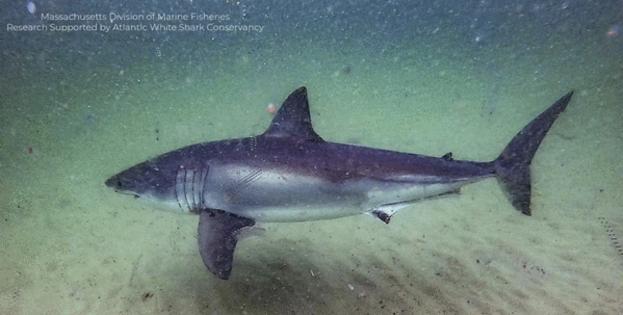Seals with shark bites spotted along Massachusetts South Shore: 'Sharks are still close to our beaches'
Published in News & Features
BOSTON — As Thanksgiving approaches, white sharks are still trying to have a feast of their own in these local chilly waters.
Shark researchers have seen a higher number of seals with shark bites along the Massachusetts South Shore this fall.
Whale and Dolphin Conservation’s Marine Animal Rescue and Response team has responded to seven seals with shark bites between Hingham and Plymouth over the past several weeks — a seven-fold increase compared to the previous month.
“The important thing to note is that we are finding these seals because the predation attempts were likely happening close to shore, giving the seals a chance to escape to the beach, or for their carcass to wash ashore,” said Lauren Brandkamp, Whale and Dolphin Conservation’s stranding coordinator.
“This means that the sharks are still close to our beaches,” Brandkamp added.
Not all of the seals were fatally injured by the shark attacks.
Sometimes white sharks will intentionally “bite and spit” seals, which allows them to avoid being injured by the seal’s teeth and claws while they wait nearby for the prey to bleed out, said New England Aquarium shark scientist John Chisholm.
Other times, sharks will simply take an “investigatory bite” to decide if the prey is worth pursuing. In both cases, seals often survive these encounters.
Chisholm has been surveying the coastal waters of Massachusetts this month, and he has reported several sightings of large white sharks near beaches from Duxbury to Chatham.
“Although the majority of white sharks are starting to move south, we know from tagging data and sighting reports that they are present off Massachusetts into the winter months,” Chisholm said. “White sharks are one of the few shark species that can elevate their body temperature, which allows them to tolerate cooler water.”
Chisholm echoed Brandkamp’s call to remain “Shark Smart” this time of year — which includes avoiding entering the water in areas where seals or schools of fish are present.
An increase in reports of sharks and seals in the area does not necessarily translate to more incidents, but rather an increase in reports.
“And this mild fall weather means people might feel like getting in the water and, while the tourist beach season has ended, the shark season has not,” Brandkamp said.
Whale and Dolphin Conservation asks that people report sightings of injured or dead marine mammals between Weymouth and Plymouth to their Marine Animal Rescue and Response Hotline at 617-688-6872.
--------
©2024 MediaNews Group, Inc. Visit at bostonherald.com. Distributed by Tribune Content Agency, LLC.







Comments